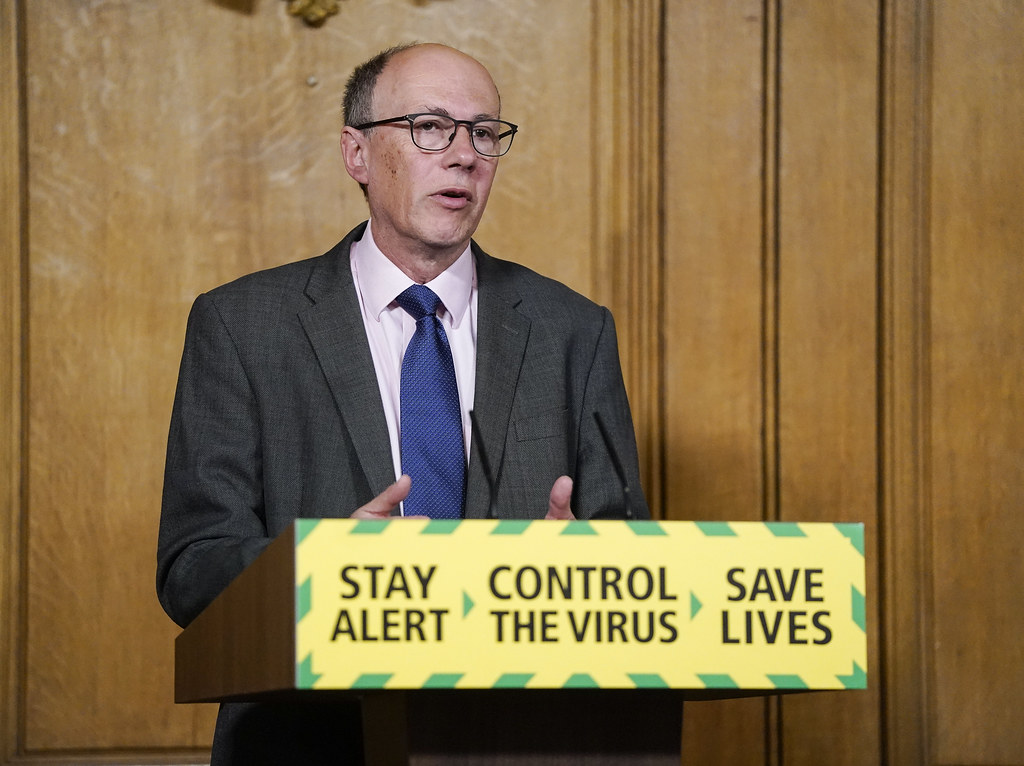
Sir Stephen Huw Powis, Medical Director of NHS England, has said that many cancers are no longer ‘a death sentence’ as treatments are on the ‘cusp of a golden era’ in a positive statement marking his departure from the role.
Future treatments, he said, would mean the number of people now living longer with cancer and surviving will continue to grow, comparing the progress made in cancer treatment to the advances in HIV treatment since he qualified as a doctor 40 years ago.
In a final interview with The Times before retiring, Professor Sir Stephen Powis outlined how our understanding of the genetics of cancer—and how it can be targeted—is being “revolutionised” and that “for many cancers now, people should be confident that it’s not a death sentence and that more treatments will become available.” Cancer treatment, he said, would be “driven by genetics” to become more individualised with the increased ability to pinpoint mutations in cells.
One of the newer techniques Professor Sir Steven Powis is referring to is immunotherapy, which has been developed to help the immune system target cancer cells; some cancers that would have been deemed untreatable a decade ago can now be targeted.
Based on rapid advances in understanding the genetics of cancer, immunotherapy trains immune cells to recognise and destroy cancer cells more effectively and destroy them, wherever they may be in the body. Whilst our bodies are good at spotting and destroying abnormal cells, cancer cells originate from our own body cells and therefore do not always trigger the immune system, which is trained to avoid attacking our own cells. Cancer cells may closely resemble normal cells and go undetected, or they may suppress immune signals to their presence. Immunotherapy works to ‘unmask’ the cancer cells by training the immune system to spot specific proteins on the cancer cells’ surface (antigens), making them easier to detect. This can be through using vaccines to prime the immune system to attack a specific antigen or genetically engineering immune cells to attack the antigen. These modified cells will persist in the body and continue to patrol for cancer cells, making them a potentially powerful tool in maintaining remission. Other approaches can include finding ways to block the cancer’s inhibition of the immune system. Immunotherapy is highly targeted and causes fewer side effects than chemotherapy and is part of a personalised medicine approach, tailored to the genetic makeup of the cancer and the patient.
These new techniques have shown success across a range of cancer types, and treatment is becoming increasingly personalised to the specific mutations in the cancer itself, thus targeting an antigen on the cancer cell that is not expressed on normal healthy cells. However, not all cancers will respond. Emerging tools such as artificial intelligence can now be used to evaluate cancer cells, rapidly identifying new targets and vulnerabilities. Genetic engineering can then be used to find ways to target or reduce the spread of cancer cells.
While the future holds promise for more effective treatments and improved outcomes, Sir Stephen stressed that prevention remains key to reducing cancer rates. Certain lifestyle factors are linked to increased risk of cancer; smoking, drinking alcohol, being overweight, etc. Cancer also increases with age, and in the UK, we have an ageing population. Prevention, screening, and referring patients quickly are all key components for reducing cancer and increasing survival rates. Public health initiatives such as the smoking ban in public places have helped to reduce smoking-related lung cancer rates, and HPV vaccination in schools has led to a significant reduction in cervical cancer rates.
Whilst Sir Steven suggests we may be entering a ‘golden age’ for cancer treatments, there are still issues. For example, although people are getting cancer diagnosed faster in the NHS, starting treatment can still be an issue, with more than 30% of patients waiting over two months to see a cancer specialist following an “urgent” referral from their GP.
Immunotherapy is showing success and becoming more widely used in the NHS, part of the “golden era” of cancer treatment in the UK. Thanks to advances in genetics and personalised medicine, treatments are becoming more common, especially for cancers like melanoma, lung, and kidney. It is increasingly being used as a first-line or maintenance treatment, especially in cases where traditional therapies are less effective. However, it can be very expensive, and the NHS often limits funding for treatment to a maximum of 2 years for certain therapies. So, access to some of the latest therapies may depend on funding policies, clinical effectiveness, and the individual patient’s response. Hopefully, production costs will eventually decrease due to advances in biotechnology and manufacturing, improved targeting of patients who are more likely to respond, and increased competition as more pharmaceutical companies enter the market.
Photo: Sir Stephen Powis, Medical Director of NHS England, who described cancer treatments as entering a “golden era” before stepping down from his role.
(Credit: Andrew Parsons/No 10 Downing St)
Rachel Kayani,
Science Tutor and Writer


